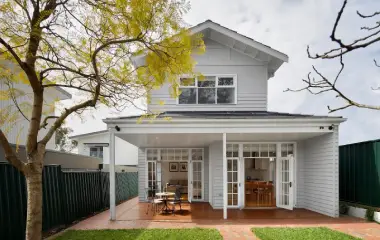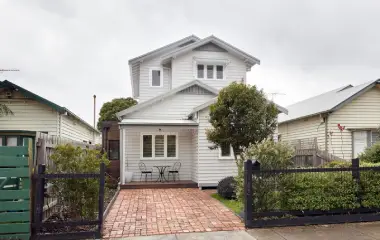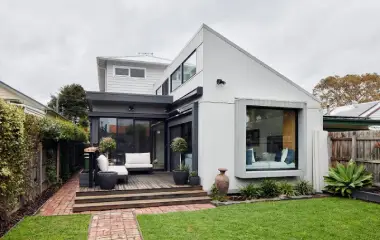Planning a home extension is exciting — new space, new possibilities, and a better lifestyle for you and your family. But one of the first questions most homeowners ask is: How long does a home extension take to build? And fair enough. If you're living in the home during the build, or juggling other commitments like school terms or upcoming family visits, knowing what to expect is essential.
While no two projects are the same, there is a clear process, and knowing how long each stage typically takes can help you plan with confidence. At Supa Group, our integrated design-and-construct model means fewer delays and clearer timelines, so you’ll never be left guessing.
What to expect from your house extension timeline
Let’s start with a quick overview. While the total timeline depends on things like council approvals, site conditions, and the size of your build, here’s what most Supa Group clients can expect:
[table]
[thead]
[tr]
[th]Phase[/th]
[th]Typical Duration[/th]
[/tr]
[/thead]
[tbody]
[tr]
[td]Design[/td]
[td]4 - 6 weeks[/td]
[/tr]
[tr]
[td]Contract preparation[/td]
[td]8 - 10 weeks (or 4 - 6 months with town planning)[/td]
[/tr]
[tr]
[td]Build[/td]
[td]5 - 7 months[/td]
[/tr]
[/tbody]
[/table]
That might sound like a lot, but the good news is you’re not doing it alone. Supa Group manages every step — from first sketches to final inspection.
[tip_box]
Fixed timeframe guarantee
All Supa Group contracts come with a fixed price, a guaranteed site start (subject to town planning) and a fixed completion date — so you’ll always know what to expect.
[/tip_box]
Stage-by-stage breakdown of a home extension
Every project we manage follows a clear, logical flow, with expert support at every step.
Design phase (4-6 weeks)
When you first contact Supa Group, our friendly team will learn what you are hoping to achieve and whether we are the right fit for you—an important first step in ensuring a successful outcome.
If your project is suitable, one of our experienced designers will contact you for a more detailed discussion. This may be followed up with a free in-home consultation where we discuss in more detail, your goals, aspirations, budget and what is possible on site.
Should you decide to proceed further, we’ll prepare a 3D Conceptual Design, that will allow you to visualise your extension in detail and refine it during collaborative design review meetings. Once you’re happy with the direction, we’ll prepare a detailed cost estimate.
After a few rounds of fine-tuning (and maybe a cuppa or two), we’ll finalise the concept and prepare an Order of Engagement.
[threed_design][/threed_design]
Contract preparation phase (8 weeks - 10 months)
Once the Order of Engagement is signed and your deposit is paid, we begin the groundwork. That includes:
- Soil tests
- Stormwater checks
- Engineering reports
- Working drawings
- Energy assessments
- Building permit applications
- Any other checks, reports or surveys required for your proposal
If your project doesn’t require town planning, we can move through this phase in as little as 6 weeks. If council approvals are needed, expect 4–6 months, depending on your local municipality (yes, councils will run on their own time).
[feature_link]You can read more about this process on the Victorian Planning Portal.[/feature_link]
Build phase (5-7 months)
Now for the fun part — actually building your new space. Our fixed-timeframe build contracts ensure that once we’re on site, you know when we’ll be finished. Most builds take around 5 to 7 months, depending on size and complexity.
We work through the following stages:
- Initial deposit & site setup
- Demolition (if required)
- Base Stage (foundations and slab)
- Lock Up Stage
- Fix Stage (internal walls, fittings, finishes)
- Completion
Second-storey home extensions may include extra lock-up and plaster stages. And yes, most of our clients stay in their homes during the build. This depends on the scope of work and which essential services remain accessible while we build.
If you can stay, we’ll work with you to assess your access and lifestyle needs to provide a level of comfort during your build..
[case_studies]
See the differences
We've delivered extensions across Melbourne — always with care, and often ahead of schedule.
View all case studies
[/case_studies]
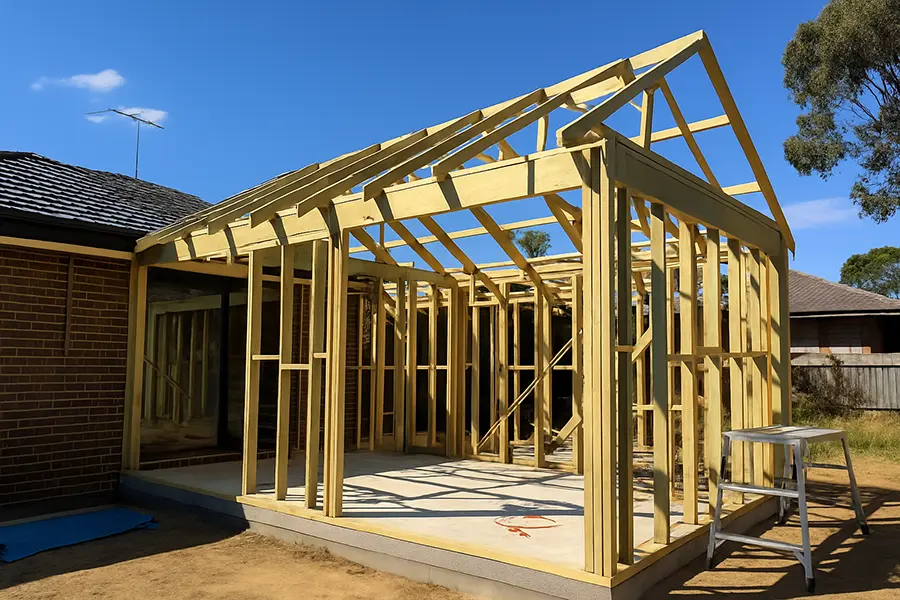
What affects your home extension timeline?
Every home is different, but here are the most common timeline influencers — and how they can impact your build.
Planning approvals
If your home sits in a heritage overlay or has tricky zoning restrictions, the timeline may stretch to accommodate council planning processes. This is especially true if a planning permit is required before a building permit can be issued.
Site conditions
Poor soil, sloping blocks, or tight access can add complexity. For example, difficult access might mean materials need to be moved manually or by crane, both of which take longer and cost more.
Project complexity
A second-storey build or multi-room ground-floor extension is naturally going to take longer than a simple single-room addition. This is especially true for major home renovations. Structural work, plumbing, and roofing all take time — and the more you're changing, the longer it takes to get it right.
Design revisions
It’s normal to tweak your design, but ongoing changes during or after contract signing can delay permits and push back your start date. A good design-and-construct process minimises this risk.
Weather or supply delays
While rare, Melbourne’s weather and supplier backlogs (especially during high-demand seasons) can occasionally cause minor delays. We build buffer time into your schedule to account for this.
[tip_box]
How to keep your project timeline on track
- Make design decisions early
- Minimise changes once the contract is signed
- Choose an integrated design-and-construct builder
[/tip_box]
Why Supa Group projects move faster
Unlike the traditional model (where you juggle a designer, draftspeople, engineer, and builder), Supa Group offers a fully integrated team under one roof. That means:
- Minimal delays between design and quoting
- Real-time revisions in design reviews
- Faster permit applications
- Fewer communication breakdowns
And because we’ve done this thousands of times, we can spot red flags early and prevent setbacks. Supa Group specialise in extensions, not new builds or unit developments. We work quickly thanks to tested construction methods, reliable trades, internal site checks and experienced supervisors. With 50 years of know-how, limited site start,s and strong supplier relationships, we deliver efficiently without overcommitting.
[process_video]
See how our process works
Watch how our end-to-end process removes delays and gets your project started faster.
[/process_video]
.webp)
Ready to start planning your extension?
Your extension timeline doesn’t have to be a mystery. With Supa Group, you get a clear plan, a fixed schedule, and an experienced team to guide you every step of the way.
[free_consultation]
Let’s plan your extension together. Our design consultants will communicate with you by phone, Zoom or meet you at your home to discuss what’s possible — and when.
[/free_consultation]
A few more insights to consider
Do I need to move out during my home extension project?
Not always. Many of our clients stay in their existing home throughout the process — especially if they’re building a second storey or single rear extension. However, if the extension involves major work to your only bathroom or kitchen, a short-term move might be more practical.
It’s worth discussing this during the design phase. A well-planned layout can allow your builder to work around essential areas like bathrooms and kitchens. In some cases, staging the building process carefully can help you remain at home while the new extension is built — saving you time and money.
There are a few other things you need to consider when planning a house extension.
How can I make sure my project stays on time and within budget?
The best way to keep your home extension project running smoothly is to work with a builder who can manage design and construction together. That allows you to finalise the design early, avoid hidden costs, and ensure your project is finished on time. Our team specialises in designing and building extensions that deliver the best design outcomes without delays or budget blowouts.
Look for home extension builders with a proven track record of completing projects on time and within budget. A streamlined extension process, good communication, and experience working with local building regulations can all make a major difference. The right team can save you time, reduce stress, and leave you happy with the end result.
Does adding a home office or open plan layout add value to your home?
Absolutely. Creating space for remote work, extra bedrooms, or a larger living area doesn’t just improve how you live — it also adds value to your home. Whether you're adding a second storey, extending onto your existing house, or reworking the layout, a quality build with the right features is a smart investment.
An open plan layout or custom home office can help your home extension seamlessly integrate with your existing home. These kinds of thoughtful upgrades improve your daily lifestyle and support long-term resale appeal. A well-executed house extension can significantly boost both liveability and market value.
What affects house extension costs in Melbourne?
House extension costs vary depending on the length and size of your project, the materials used, and how complex the site is. Second-storey extensions tend to cost more per square metre than ground-floor builds. Your final design, choice of builder, and how well you plan your timeline will also affect what you pay. If you're concerned about costs, let's talk about how affordable house extensions can be.
The best way to manage home extension costs is to get clarity early — and work with a builder who gives you a fixed-price contract and clear staging. If you're extending a Melbourne home, keep in mind that the building process itself isn’t the only cost to consider. There may also be upgrades to electrical, plumbing, or insulation required to meet building regulations.
What's involved in the initial consultation?
The initial consultation is where it all begins. It’s your chance to talk through your goals, get advice from experienced professionals, and explore what’s possible with your existing home. A good builder will take the time to listen, understand your lifestyle, and help you uncover the best design solutions.
It’s also where you’ll begin to understand how long your project will take, what the extension process looks like, and what you can expect from the building companies you’re considering. This stage helps you feel informed and confident before committing to any design work.
Importantly, the initial consultation is an opportunity for both Supa Group and our clients to have an honest conversation about the potential costs involved to achieve your goals. This saves our clients a lot of time and potentially money as there is no point drawing up plans and incurring other professional costs such as engineering if the project doesn't pass the feasibility test.
Can a new extension be added to any house?
In most cases, yes, but it depends on your site, existing home structure, and what kind of space you want to add. Some homes are ideal for a second-storey extension, while others are better suited to expanding outwards at ground level.
A designer will assess your property, discuss how to lay out your space to suit your needs, and help ensure the new build ties into your existing house. The right approach will extend your living space while maintaining the integrity and flow of your Melbourne home.
How do I choose the right home extension builder?
Choosing the right builder is about more than price. You want a team that specialises in home extension services, understands Melbourne’s building regulations, and has experience with the type of house extension project you’re planning.
Start by finding the best fit — someone who communicates well, shows you past projects, and can explain how they’ll handle everything from design to approvals to construction. A builder who offers integrated design and construction will usually deliver a smoother experience from start to finish. Importantly, go with a builder who is careful with their designs and the quality of their construction and has confidence in warranting their work.
That's how you get to last 50 years in the industry.

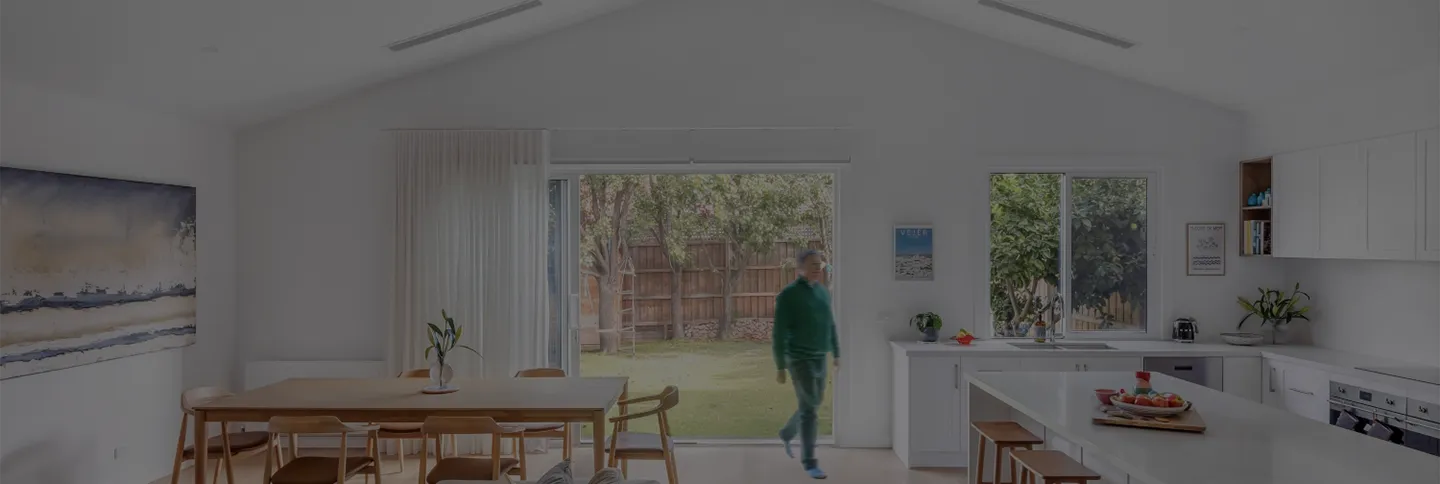
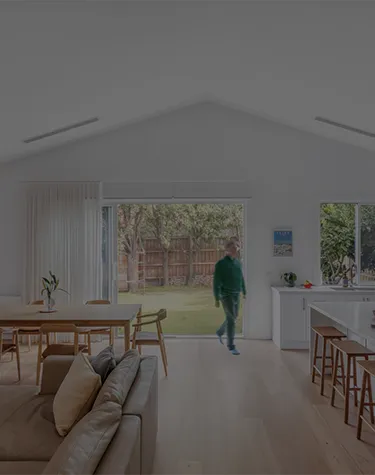


.webp)


